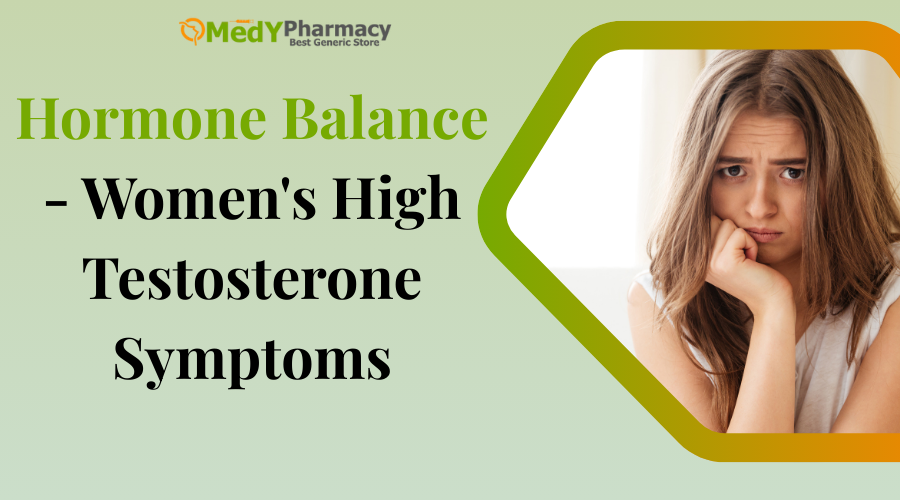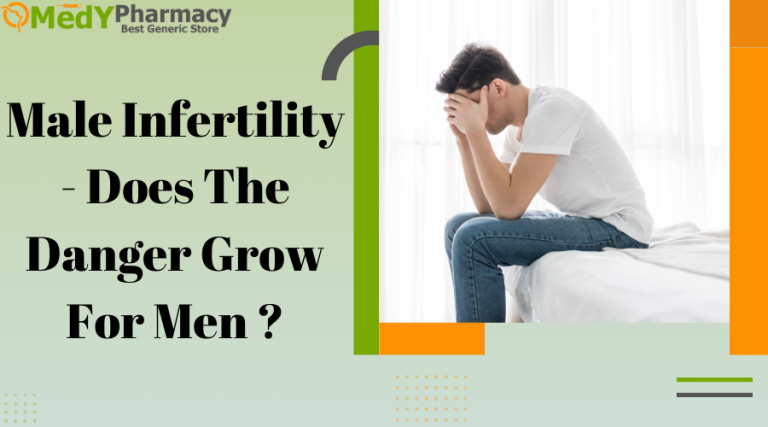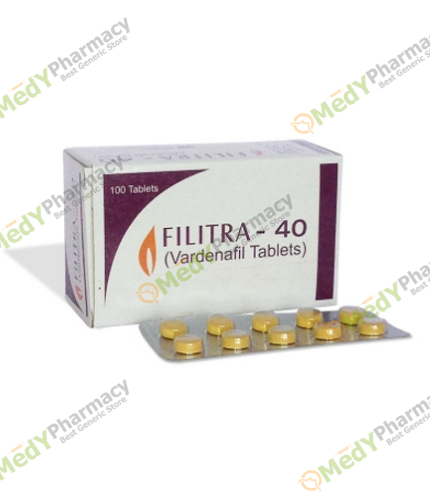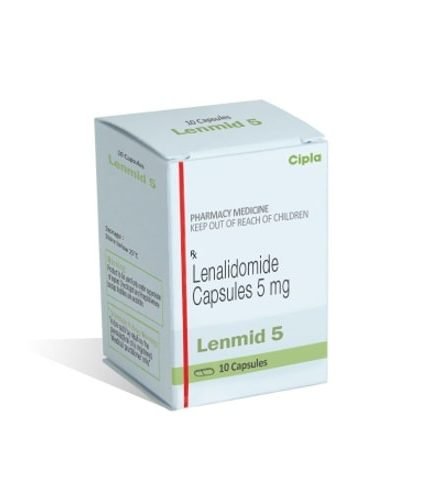Introduction:
People with vulvas who have high testosterone levels, or hyperandrogenism, may have mood swings, acne, and excessive body hair.
The body uses this sex hormone to assist in chemical processes. Small amounts of the hormone are also produced in the ovaries and adrenal glands of those with vulvas, even though many people may only think of those who have penises.
Although the objective is to address your particular reasons, certain standard actions can help women with high testosterone.
In terms of hormone balance, this isn’t usually at the top of our agenda, particularly for women, but it’s a crucial hormone that gives us a sense of strength and energy.
This happens when the blood contains an excessive amount or an insufficient amount of a hormone. Depending on whatever hormone is out of balance, changes in weight, decreased sex drive, and acne are common symptoms.
Since too much testosterone can disrupt ovulation and reproductive hormone cycles, irregular menstruation, such as irregular or nonexistent periods, is also prevalent. In certain instances, this might result in difficulties conceiving.
Concerning High Testosterone
When symptoms of high testosterone levels in women begin to interfere with everyday living, mental stability, or reproductive health, it can be a serious health concern.
A woman’s hormone balance can be upset by too much testosterone, even though it is an essential hormone for both men and women and contributes to bone strength, muscular growth, and desire.
Unusual hair growth in places like the face or breast, thinning hair on the scalp, irregular or skipped periods, and persistent acne are just a few of the upsetting ways that this imbalance can show itself.
Women may also occasionally suffer weight gain around the belly, deeper changes in their voices, or an increase in their anxiety and irritability.
This can be a sign of more serious underlying disorders, including insulin resistance, congenital adrenal hyperplasia, or polycystic ovarian syndrome (PCOS), in addition to these outward manifestations.
If you suspect any of these disorders, you should consult a doctor since they can have long-term impacts on heart health, metabolism, and fertility.
To restore balance and enhance quality of life, early diagnosis and a customised treatment plan—whether involving medication, lifestyle changes, or addressing underlying conditions—can make a big impact.
What Is Hormone Balance?
The endocrine system’s glands create these substances. They provide instructions that instruct the organs on what to do and when to do it by making their way via the circulation to the tissues and organs.
- Metabolism
- Homeostasis
- Growth and development
- Sexual function
- Reproduction
- Sleep-wake cycle
- Mood
These are strong signs. Additionally, while some of them may not directly affect your health, they may have a detrimental effect on your quality of life, and others may necessitate therapy to maintain your physical well-being.
Numerous things, such as stress, bad eating habits, sleep deprivation, thyroid issues, PCOS, and normal life phases like puberty, pregnancy, and menopause, might contribute to this.
Overall health depends on maintaining hormone balance, which frequently entails a combination of stress reduction, a good diet, healthy lifestyle choices, and, in certain situations, medical intervention to address imbalances.
What Is A Woman’s Normal Testosterone Level?
Despite being significantly lower than in males, a woman’s proper testosterone levels are nonetheless important for her general health.
The hormone testosterone, which is mostly generated by the ovaries and adrenal glands, is essential for a woman’s overall health, mood control, sexual desire, bone density, and muscle strength.
Generally speaking, women’s total testosterone levels fall between 15 and 70 nanograms per decilitre, with younger women usually having the upper end of the range.
It’s crucial to remember that free testosterone, or testosterone that is not attached to proteins and is usable by the body, is often found in far lesser quantities but is nevertheless essential for female health.
What Symptoms Might One Expect From A Hormone Imbalance?
Numerous symptoms may result from this, as hormones control several essential bodily functions, including mood, energy, metabolism, and reproduction.
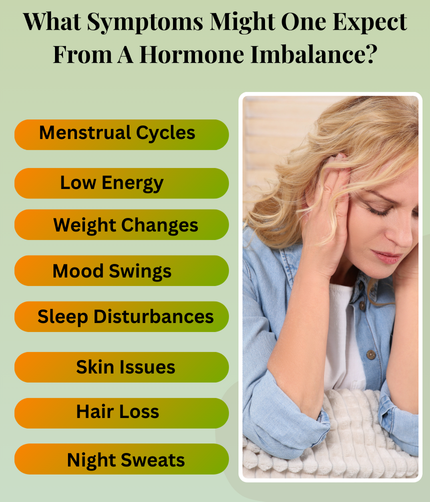
- Menstrual Cycles
Period irregularities, especially those affecting oestrogen, progesterone, or thyroid hormones, might be indicated by missing periods or by having excessively frequent or heavy periods.
Absence of periods may indicate low oestrogen levels or illnesses such as premature menopause or polycystic ovarian syndrome (PCOS).
- Low Energy
Even after a full night’s sleep, persistent fatigue may be caused by an imbalance in thyroid hormones, the stress hormone cortisol, or other metabolic factors.
- Weight Changes
A hormonal imbalance can make it more difficult to control weight, especially if it involves insulin resistance, thyroid problems, or cortisol. Unexpected weight loss might indicate metabolic problems or hyperthyroidism.
- Mood Swings
Hormones that affect mood control include cortisol, progesterone, and oestrogen. This is most prevalent during perimenopause, menstruation, pregnancy, or as a result of ongoing stress.
- Sleep Disturbances
Women who have low levels of progesterone may have trouble falling or staying asleep. Stress-induced high cortisol levels can also interfere with sleep cycles, which can lead to insomnia or poor sleep quality.
- Skin Issues
Acne, especially around the jawline and chin, can result from excess testosterone or from abnormalities in oestrogen and progesterone. This frequently occurs during puberty, pregnancy, or menopause, as well as in disorders like PCOS.
- Hair Loss
Hair thinning or severe hair loss may result from hormonal abnormalities. While low oestrogen levels may lead to hair loss, especially in elderly women, high testosterone can induce hirsutism.
- Night Sweats
Because oestrogen levels are dropping, these are typical menopausal symptoms. They may, however, also manifest in women experiencing thyroid problems or other hormonal disturbances or during the perimenopause.
Sex-Steroid Hormones
Sex steroid hormones are a class of hormones that are essential for the development and control of sexual traits, reproduction, and several other body processes.
Breast growth and hip enlargement are examples of secondary sexual traits that are encouraged by oestrogen in females. Additionally, it aids in controlling the distribution of fat and contributes to the preservation of vaginal health.
Apart from its reproductive roles, progesterone also calms the body, assisting in mood regulation and sleep promotion. During pregnancy, it stimulates the development and operation of the mammary glands and aids in maintaining the endometrial lining’s healthy function.
Furthermore, the adrenal glands have a role in the synthesis of androgens, notably in women, especially androstenedione, a precursor to both estrogen and testosterone.
This aids in the development of the eggs and gets the uterus ready for implantation, while progesterone keeps the lining of the uterus healthy during pregnancy.
Maintaining both physical and mental health depends on their balance and production. The key to general health is knowing how these hormones work and preserving hormonal balance, since any disturbance in them might have serious consequences.
Males may experience erectile dysfunction due to low testosterone levels, while females may experience negative consequences.
Women’s Symptoms of Excessively High Testosterone
- Acne and Oily Skin
Often occurring together, acne and oily skin are typical skin problems that can be brought on by or made worse by hormone imbalances, lifestyle choices, or underlying medical diseases.
Excessive production of sebum, the natural oil that keeps the skin hydrated, by the sebaceous glands of the skin results in oily skin.
When sebum production is excessive, however, it can block pores and cause acne. This article delves deeper into the causes of oily skin and acne and discusses ways to treat them.
- Pattern Baldness
Genetic predisposition is the main cause of pattern baldness. You may have a higher chance of developing hair loss if one or both of your parents did. One can inherit the gene that causes androgenetic alopecia from either parent.
Pattern baldness frequently becomes worse as people age. Hair loss in males often starts in the late 20s or early 30s and gets worse with time, but it can also happen to women later in life, especially during or after menopause, when hormone levels change.
- Voice Deepening
The process by which a person’s voice lowers in pitch, frequently giving it a more resonant or manly tone, is known as voice deepening. Voice deepening can occur in both men and women as a normal aspect of adolescence, but it can also be caused by certain medical disorders, hormone imbalances, or lifestyle choices.
In contrast to males, women’s voices alter during puberty, although the deepening is not as noticeable. A lower-pitched voice compared to prepubescent girls is the result of a small thickening of the vocal cords.
- Muscle Mass
The quantity of muscle tissue in the body is referred to as muscle mass, and it affects metabolism, strength, and attractiveness. Muscle mass is a crucial component of physical fitness and health, impacting many facets of life, including metabolism, general well-being, and physical performance.
Though biological and hormonal variances may cause variations in the distribution and amount of muscle mass, both men and women possess it.
The distribution of muscle mass in the body and its quantity are mostly determined by genetics. Because of their metabolic efficiency, tendon length, and the makeup of their muscle fibres, certain persons are inherently inclined to gain greater muscle.
- Enlarged Clitoris
In some cases, women with very high testosterone levels may experience clitoromegaly, which is the enlargement of the clitoris. This condition is often associated with severe androgen excess and can be distressing for those affected.
- Increased Libido
An increase in interest in or desire for sexual activity is referred to as heightened sexual desire, or increased libido. While there are many reasons why libido might change during a person’s life, an increase in sexual desire can happen for several reasons and at different periods. Although it might happen spontaneously, occasionally it can be connected to hormonal shifts, psychological issues, or lifestyle changes.
Pregnancy can cause increased libido for some women, particularly in the second trimester when hormonal changes can intensify sexual desire. This varies greatly from person to person, though, and during pregnancy, some people may have less libido because of physical discomfort or exhaustion.
- Infertility
Many different medical and lifestyle reasons might lead to infertility. Individuals and couples may overcome infertility with a variety of treatment choices, even though it can be an emotionally taxing condition. It’s critical to speak with a medical professional who specialises in reproductive health if you suspect infertility to determine the cause and discuss possible treatments.
A balanced diet, regular exercise, abstinence from alcohol and tobacco, and stress management are all examples of better lifestyle choices that can increase fertility in both men and women.
Due to the emotionally taxing nature of infertility, therapy or fertility support groups may be helpful
Diagnosing High Testosterone
- Abnormal Facial Hair
- Acne
- Excess Body Hair
Depending on your symptoms, a doctor will usually do a physical examination to see if you require further testing. The following common symptoms will be looked for during the examination:
A doctor will take a sample of your blood to do this test and check the hormone levels in it.
Your doctor might urge you to cease taking any medications that might alter the test findings before doing this test.
Treatment of High Testosterone in Females
The intensity of symptoms, underlying reason, and personal health factors all influence how elevated testosterone levels in females are treated. Women who have high testosterone may have symptoms including acne, thicker hair, deepening of the voice, and irregular menstrual periods. Combining lifestyle modifications, medication treatments, and occasionally surgery can be used to treat elevated testosterone levels.
This anti-androgen medication is frequently used to prevent the effects of testosterone. By inhibiting the androgen receptors on skin cells, spironolactone reduces symptoms including acne and excessive hair growth. It also stops these receptors from being bound by testosterone.
Because of its propensity for liver damage, flutamide, another anti-androgen, is typically regarded as a second-line medication; however, it may be utilised in some situations.
In order to evaluate the efficacy of therapy and make any required pharmaceutical adjustments, treating excessive testosterone frequently necessitates routine monitoring. Periodically, blood tests to measure hormone levels, such as those of testosterone, FSH, and LH, may be performed. Doctors may also keep an eye on menstruation irregularities, hirsutism, and acne signs to make sure medication is successful.
Several underlying diseases, most notably PCOS and adrenal problems, can cause high testosterone in women. Medication, lifestyle modifications, and maybe surgery are all part of the usually customised course of treatment.
This means that whereas men may readily cure the same condition with simple medications like Cenforce 25, women cannot.
Symptoms of a Female Sex Hormone Imbalance
A female sex hormone imbalance happens when the natural equilibrium is disrupted by fluctuations in the amounts of estrogen, progesterone, testosterone, or other hormones. Different symptoms may result from this, depending on the hormone type and the underlying reason for the imbalance.
Women may be prone to irritation, anxiety, melancholy, or abrupt or extreme mood changes. These mood swings might occasionally feel more severe than regular PMS.
Hormonal imbalances can cause unexplained weight gain or the inability to shed weight despite attempts at diet and exercise.
Night sweats and hot flashes can result from low estrogen levels because they alter the body’s ability to regulate its temperature, particularly during perimenopause and menopause.
Progesterone or testosterone treatment, hormone replacement therapy (HRT), or birth control tablets can all aid in hormone balance.
It can be necessary to restore thyroid hormones if the imbalance is linked to thyroid problems.
How Do Women’s Hormones Balance Testosterone?
Naturally, women’s bodies generate less testosterone than men’s, mostly through the adrenal glands and ovaries. Despite being seen as a “male hormone,” testosterone is crucial for women’s health since it supports mood, libido, muscle strength, and bone density.
The female body has a highly regulated hormonal system to control testosterone in addition to other hormones like estrogen and progesterone, but balance is the key to preserving health.
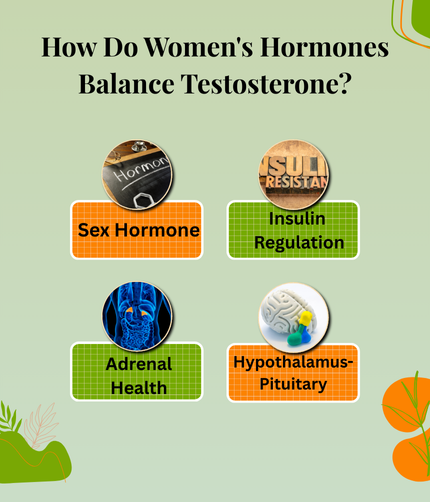
- Sex Hormone
In both men and women, these potent chemical messengers are essential for controlling sexual development, reproductive processes, and general health. These—including estrogen, progesterone, and testosterone—are mostly generated by the testes in men and the ovaries in women, with the adrenal glands contributing minor quantities as well.
Estrogen and progesterone are the primary sex hormones in women, controlling the menstrual cycle and facilitating conception. Estrogen has essential functions in mood management, skin health, bone density, and cardiovascular function.
It also helps develop secondary sexual features in women, such as breasts and broader hips.
Infertility, mood swings, acne, exhaustion, irregular periods, and other health issues can result from a disturbance in this delicate hormonal balance. As a result, a woman’s mental and physical well-being throughout her life, as well as her reproductive health, depend on maintaining appropriate sex hormone levels.
- Insulin Regulation
A crucial mechanism that supports the body’s general metabolic health and stable blood sugar levels is insulin control. The main function of insulin, a hormone the pancreas produces, is to enable glucose from our diet to enter the body’s cells and be utilized as fuel.
Following a meal, when blood sugar levels increase, the pancreas produces insulin to help transport glucose into cells and return them to normal.
This might eventually result in blood sugar and insulin levels that are persistently high, which can aggravate diseases including diabetes, obesity, and hormone abnormalities. Insulin resistance and PCOS are frequently associated in women.
Excess insulin causes the ovaries to generate more testosterone, which results in symptoms including acne, irregular periods, and excessive hair growth.
In addition to being crucial for maintaining hormone balance and controlling weight, proper insulin regulation also helps to avoid long-term issues. This may be accomplished by combining regular exercise, a healthy diet that is high in fiber and low in refined carbohydrates, getting enough sleep, and managing stress. These factors all help the body respond to insulin efficiently and preserve metabolic balance.
- Adrenal Health
Because the adrenal glands regulate the body’s reaction to stress, energy levels, metabolism, immune system, and hormone balance, they are an essential component of general health. Several vital hormones, including cortisol, adrenaline, aldosterone, and trace levels of sex hormones like estrogen and testosterone, are produced by the adrenal glands, which are situated above the kidneys.
Cortisol, also known as the “stress hormone,” helps the body react to mental or physical stress by controlling blood pressure, lowering inflammation, and regulating blood sugar.
Adrenal exhaustion or, in more extreme situations, adrenal insufficiency can result from the overstimulation of the adrenal glands, which is frequently caused by persistent stress, sleep deprivation, poor nutrition, or underlying medical disorders.
By supporting a healthy stress response and taking care of the adrenal glands, people can improve their resilience, energy, hormone balance, and general vigor.
- Hypothalamus-Pituitary
A key communication network in the endocrine system, the hypothalamus-pituitary axis regulates the production and release of several hormones necessary for the body’s general operation and hormonal balance.
The pituitary gland, also known as the “master gland” because of its extensive impact on other endocrine glands, including the thyroid, adrenal glands, and reproductive systems, and the hypothalamus, a tiny but potent area of the brain, make up this axis.
By continuously observing the internal environment of the body and communicating with the pituitary gland by releasing or blocking hormones, the hypothalamus serves as a control centre.
The flawless coordination of the body’s hormonal symphony depends on a functioning hypothalamic-pituitary axis.
Natural Hormone Balance Treatment
By modifying one’s food, lifestyle, and stress-reduction practices, one can achieve natural hormone balance without depending on pharmaceutical or synthetic hormone treatments. The objective is to treat the underlying causes of imbalances and promote the body’s natural hormone production.
Vitamins, fibre, and antioxidants found in fruits and vegetables can help with detoxification and hormone production. The metabolism of oestrogen is particularly supported by cruciferous vegetables.
Consuming meals that aid in blood sugar stabilisation can significantly impact hormones, especially cortisol and insulin. Eat more whole grains, veggies, and legumes—foods with a low glycemic index (GI)—and stay away from processed meals, refined grains, and sugary snacks.
Fine needles are inserted into particular body sites during acupuncture, an ancient Chinese medical procedure, to control the flow of qi. It is said to aid in menstrual cycle regulation, stress reduction, circulation enhancement, and hormone balancing.
The body’s natural cleansing processes, stress reduction, and circulation can all be enhanced by massage treatment, especially lymphatic drainage massage, which can help with hormone balance.
Maintain Regularity in Hormone-Supporting Activities
Maintaining hormonal balance calls for sustained, persistent work. Little everyday routines, like eating a balanced diet, controlling stress, or getting adequate sleep, may make a major difference in your hormonal health.
Your body will retain balanced hormones, and your quality of life will improve if you adopt healthy behaviours over time, such as regular exercise, a balanced diet, and stress management.
Maintain consistent communication with your physician to track hormone levels and treat any abnormalities as soon as they arise. Hormone testing can assist in detecting any possible problems that would need to be addressed.
By adopting these practices and making them part of your daily routine, you can help support your body’s natural hormone production and regulation, leading to better health and overall well-being. If you’re experiencing symptoms of hormonal imbalance, it’s always a good idea to consult with a healthcare professional to ensure you’re on the right track.
How Can Women Maintain Hormonal Balance?
Since hormones affect a woman’s metabolism, emotions, reproductive health, and energy levels, maintaining hormonal balance is crucial for general well-being.
Because estrogen is stored in fat cells, having too much body fat can raise estrogen levels and lead to estrogen dominance. Conversely, women who have eating disorders or engage in intense exercise may have low estrogen due to having too little body fat.
Hormonal processes ranging from metabolism to reproduction are regulated when a balanced weight is maintained by a nutritious diet and consistent exercise.
These exercises help reduce stress and support healthy cortisol levels. They also promote deep breathing, which enhances relaxation and helps the body remain in a more balanced, low-stress state.
Usually, it results from an underlying medical issue. Nevertheless, it comes with a lot of expenses, takes a long time, and has a lot of potential negative consequences. Additionally, some of the adverse effects are serious. In these situations, you can get comfort by taking medications from Medypharmacy.







